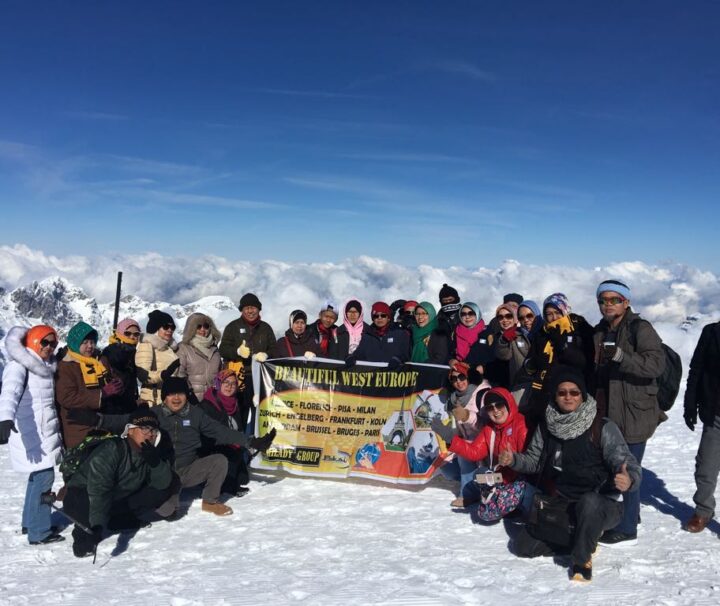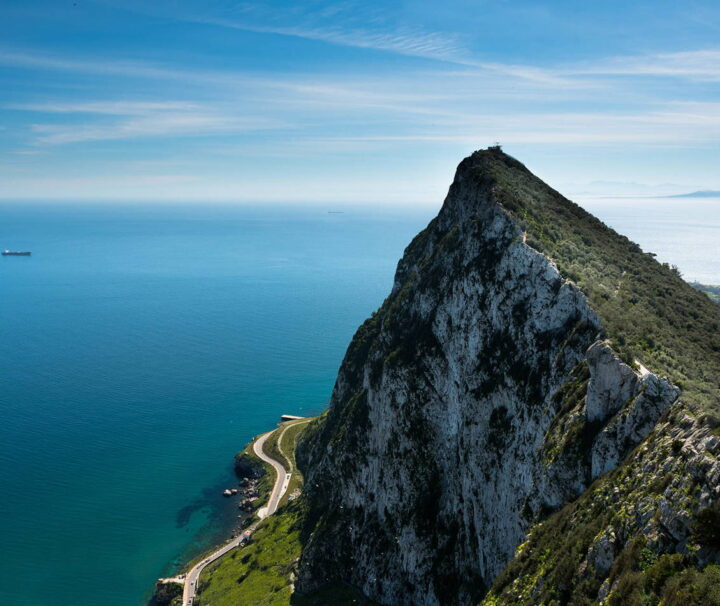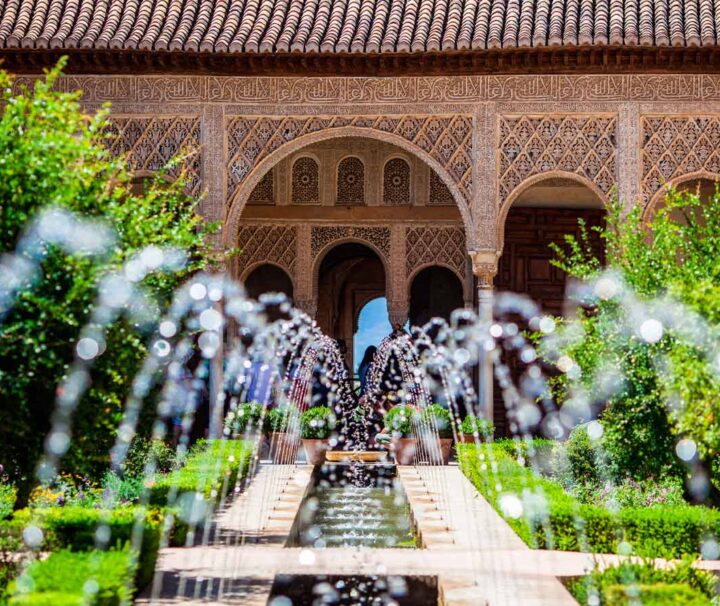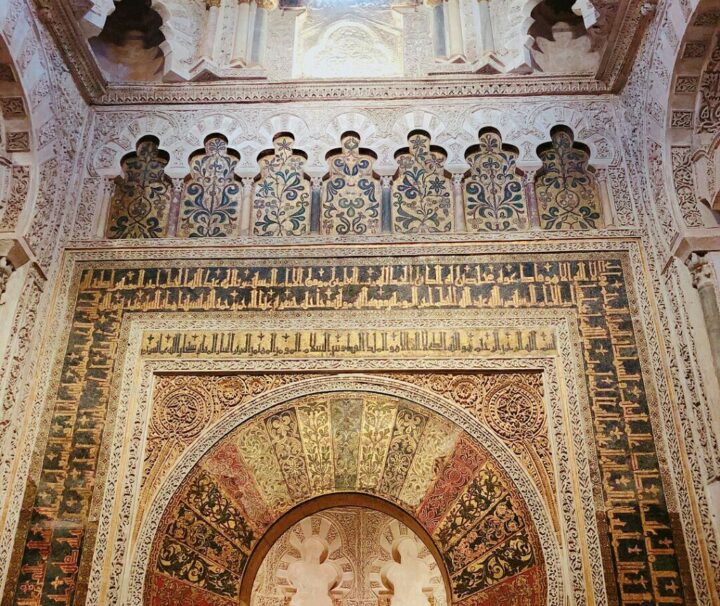What to see in Rome?
Italy Muslim friendly destination
Rome its a spectacle, may not be the capital of the world these days, but it is still one of the most amazing historical cities in the world.
The Muslim presence in Italy dates back to the 8th century when the island of Pantelleria (Sicily) was conquered by the Arabs. They were strong in this lands until the 12th century; even though, a small Muslim community survived at least until 1300 in a place called Lucera. In times of Muslims, agriculture in Sicily prospered and became export oriented and the Arts and crafts flourished as well. Palermo, the Muslim capital of the island, had 300,000 inhabitants an exhorbitant number by that date.
Nowadays there are 1.400.000 Muslims in Italy, the majority are Sunni, with a Shi’ite minority.
Mosque of Rome

The Mosque of Rome is located at the foot of Mount Antenne, in the Parioli neighbourhood, inaugurated in 1995 this is the only Islamic temple in Rome and the largest Mosque in Europe too.
The Mosque is equally beautiful both in its interiors and exteriors. It has been designed by the Iraqi architect Sami Mousawi and the Italian architect Paolo Portoghesi. The outcome is a fascinating architecture made of repetitious designs and amazing geometric patterns, where an important role is played by the light aimed to create a meditative atmosphere and several tricks of light as well, such as the different temperature of light between the two main sections of the Mosque: the warmer and the colder. Beautiful mosaics creating more optical effects and the floor is covered by an extremely soft Persian carpet with geometrical patterns as well.
There is a curious feature regarding the height of the minaret, the only one in the world lacking loudspeakers for calling the faithful to prayer, since during construction a limitation on the height was placed so that it would not reach or exceed the height of the dome of St. Peter’s.
Address: Viale della Moschea, 85, 00199 Roma RM, Italia
Visiting hours: Wednesday and Saturday from 9.00 to 11.30
(while on Friday mornings there is a great Arabic food market outside the Mosque)
The Colossseum

Located just east of the Roman Forum the Colosseum is the main symbol of Rome. It is an imposing amphitheater that with almost 2,000 years of history. It was commissioned around A.D. 70-72 by Emperor Vespasian of the Flavian dynasty as a gift to the Roman people.
In A.D. 80, Vespasian’s son Titus opened the Colosseum with 100 days of games, including gladiatorial combats and wild animal fights in a public forum with crowds reaching 50,000. These spectators, who may have been arranged according to social ranking, were most likely packed into the space very tightly. Gladiators were generally slaves, condemned criminals or prisoners of war.
Measuring 190 by 155 meters, the Colosseum was the largest amphitheater in the Roman world. The Colosseum remained active for over 500 years afterwards it was used as a source of building materials, reason why two-thirds of the original Colosseum has been destroyed over time until the 18th century when the building was declared protected.
Address: Piazza del Colosseo, 1, 00184 Roma, Italy
Visiting hours: 8.30 until 1hr before sunset
The Vatican City

The Vatican, the world’s smallest sovereign state, sits over the river from the historic centre. Centred on the domed bulk of St Peter’s Basilica, it boasts some of Italy’s most revered artworks, many housed in the vast Vatican Museums (home of the Sistine Chapel).
The Vatican City is the center of the Catholic Church began with the construction of a basilica over St. Peter’s grave in Rome in the 4th century A.D. The Vatican remains the home of the pope and the Roman Curia, and the spiritual center for some 1.2 billion followers of the Catholic Church. The world’s smallest independent nation-state, it covers 109 acres, and possesses another 160 acres of holdings in remote locations. It has 600 citizens include the members of the Swiss Guard a security detail charged with protecting the pope.
Address: Viale Vaticano , Rome, Italy
Palatino Hills

It was here that Romulus supposedly founded the city in 753 BC. Roman myth holds that Romulus established Rome on the Palatino after he’d killed his twin Remus in a fit of anger. Archaeological evidence clearly can’t prove this, but it has dated human habitation on the hill to the 8th century BC.
As the most central of Rome’s seven hills, and because it was close to the Roman Forum, The Palatino was the ancient city’s most exclusive neighbourhood. The emperor Augustus lived here all his life and successive emperors built increasingly opulent palaces. But after Rome’s decline, the area fell into disrepair, and in the Middle Ages churches and castles were built over the ruins. During the Renaissance, members of wealthy families had landscaped gardens laid out on the site.
Among the ruins the major attractions from the site are for the Stadio (stadium), the ruins of the Domus Flavia (imperial palace), and grandstand views over the Roman Forum from the Orti Farnesiani.
Trevi Fountain

Measuring 20 meters in width by 26 meters in height, Trevi Fountain is the largest fountain in Rome. The origins of the fountain go back to the year 19 B.C, in which period the fountain formed the end of the Aqua Virgo aqueduct. Its name derives from the words Tre Vie (three ways), because it was the meeting point of three streets.
There is always people throwing coins into the water because of a myth originated in 1954 with the movie Three Coins in the Fountain where it was said:
- If you throw one coin: you will return to Rome.
- If you throw two coins: you will fall in love with an attractive Italian.
- If you throw three coins: you will marry the person that you met.
In order to achieve the desired effect, you should throw the coin with your right hand over your left shoulder.
Approximately a million euros worth of coins are taken from the fountain each year. Since 2007 this money has been used to support good causes.
Address: Piazza di Trevi, 00187 Rome
Castel Sant Angelo

Originally it was commissioned by the Roman Emperor Hadrian as a mausoleum for himself and his family. The building was later used by the popes as a fortress and castle, and is now a museum. Located on the right bank of the Tiber, the castle was built in the middle of the 2nd century. Once decorated cylinder it hold a garden top and golden quadriga. Much of the tomb contents and decorations have been lost since the building’s conversion to a military fortress in the 5th century. After the 14th century The popes converted the structure into a castle, and Nicholas III connected the castle to St Peter’s Basilica by a covered fortified corridor called the Passetto di Borgo. The fortress was the refuge of Pope Clement VII from the siege of Charles V’s Landsknechteduring the Sack of Rome
I’s name comes from a legend that holdsthe Archangel Michael appeared atop the mausoleum, sheathing his sword as a sign of the end of the plague of 590.
Address: Lungotevere Castello, 50 – 00193 Rome
Visiting hours: Every day from 9.00 to 19.30
Pantheon of Agripa

The Pantheon of Agripa is one of the architectural masterpieces of the Italian capital. It is the best preserved building from ancient Rome. The construction of the current Pantheon was carried out during the reign of Hadrian, in the year 126 A.D.
At the beginning of the 7th century the building was donated to the Pope Boniface IV, who transformed it into a church, in which function it currently finds itself in a perfect state of preservation. The most surprising aspect of the architecture in the Pantheon is its measurements: the circular building has exactly the same diameter as its height: 43.5 metres.
Address: Piazza della Rotonda, 00186 Rome
Visiting hours: Monday to saturday from 08:30 to 19:30
Sunday from 09:00 to 18:00
Museum and Gallery Borghese
The Museum in the beautiful setting of Villa Borghese in Rome preserves sculptures, reliefs, ancient mosaics, and paintings and sculptures from the 15th to the 18th century. Housing what’s often referred to as the ‘queen of all private art collections’, The Villa boasts paintings by Caravaggio, Raphael, and Titian, as well as some sensational sculptures by Bernini.
The museum’s collection was formed by Cardinal Scipione Borghese in the 16th century, he was the most knowledgeable and ruthless art collector of his time. It was built by the architect Flaminio Ponzio, developing sketches by the Cardinal himself.
The Galleria Borghese includes twenty rooms across two floors. To limit numbers, visitors are admitted at two-hourly intervals, so you’ll need to pre-book your ticket and get an entry time.
Address: Piazzale del Museo Borghese 5, 00197 Rome, Italy
Openning hours: Tuesday to Sunday from 9:00 to 19:00
Halal Restaurants in Rome
In a large and cosmopolitan city as Rome, with a growing Muslim population and visitors, there are many restaurants offering Halal food.
55 Via Principe Amedeo, Rome
45-46-47 Piazza dei Cinquecento, Rome
Via Gioberti, 11, Rome
11 Via Marghera, Rome
271 Via Merulana, Rome
118 Via Vittorio Veneto, Rome
16B Via di Porta Pinciana, Unit B, Rome
Via Merulana, 77, Rome
Via del Teatro Pace 37-38, Rome,
143 Via dei Coronari, Rome
54-56 Via Chiana, Rome
325 Via Principe Amedeo, Rome
40a/41 Via della Mercede, Rome
Via Carlo Alberto 28/A, Rome
130 Via Rasella, Rome
153 Via Cavour, Rome
67 Via Principe Amedeo, Rome
Via Gioberti 13, Rome
Via Daniele Manin 10, Rome
You may also like check our videos
Europe Muslim Tours
Spain Private Tours
Europe Tours for Muslim Travelers
Morocco & Spain - 8 Days
Alhambra Muslim Tour
Andalusia Madrid And Barcelona Tour - 7 Days
